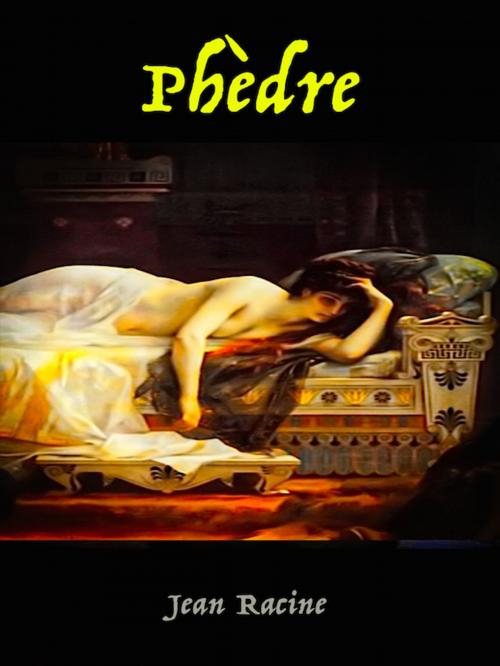| Author: | Jean Racine | ISBN: | 1230001695540 |
| Publisher: | Editions Artisan Devereaux LLC | Publication: | May 28, 2017 |
| Imprint: | Language: | English |
| Author: | Jean Racine |
| ISBN: | 1230001695540 |
| Publisher: | Editions Artisan Devereaux LLC |
| Publication: | May 28, 2017 |
| Imprint: | |
| Language: | English |
“All I need is your silence to succeed.”
Silence implies consent…”
Phèdre by Jean Racine is what Lytton Strachey described as the “history of a spiritual crisis…the final catastrophic phases of a long series of events.”
Based on the play Hippolytus by the Greek playwright Euripides, Phèdre deals with love that violates social taboos.
Beautiful Phèdre falls in love with her stepson, Hippolytus, with tragic consequences.
After being accused of rape and rejected by his father, Hippolytus is killed by a sea-monster.
The story arc is classically defined: the crisis, the tragic hero, the wretched result: Phèdre commits suicide.
JEAN RACINE (1639-1699) was born at La Ferté Milon, sixty miles east of Paris. Orphaned at an early age, he was educated at the Little Schools of Port Royal and the pro-Jansenist College of Beauvais. He soon reacted against his ascetic tutors and by 1660 had begun to write for the theater and been introduced to the court of Louis XIV. In 1677, when he had ten plays to his credit and was high in favor with both the court and the public, he abandoned the theatre and joined the Establishment as Royal Historiographer.
“All I need is your silence to succeed.”
Silence implies consent…”
Phèdre by Jean Racine is what Lytton Strachey described as the “history of a spiritual crisis…the final catastrophic phases of a long series of events.”
Based on the play Hippolytus by the Greek playwright Euripides, Phèdre deals with love that violates social taboos.
Beautiful Phèdre falls in love with her stepson, Hippolytus, with tragic consequences.
After being accused of rape and rejected by his father, Hippolytus is killed by a sea-monster.
The story arc is classically defined: the crisis, the tragic hero, the wretched result: Phèdre commits suicide.
JEAN RACINE (1639-1699) was born at La Ferté Milon, sixty miles east of Paris. Orphaned at an early age, he was educated at the Little Schools of Port Royal and the pro-Jansenist College of Beauvais. He soon reacted against his ascetic tutors and by 1660 had begun to write for the theater and been introduced to the court of Louis XIV. In 1677, when he had ten plays to his credit and was high in favor with both the court and the public, he abandoned the theatre and joined the Establishment as Royal Historiographer.















